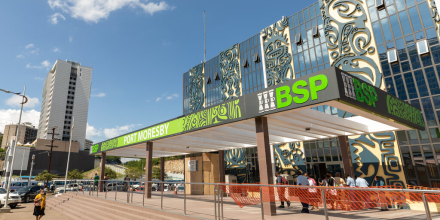The determinants of excess reserves in the PNG banking system

Event details
Seminar
Date & time
Venue
Speaker
Contacts
This presentation examines why profit-maximising commercial banks in PNG demand non-remunerated excess reserves. An autoregressive distributed lag model is employed to estimate the determinants of excess reserves using time series data for the period January 2002 to December 2017. The model includes precautionary and involuntary factors that affect excess reserves in commercial banks. The findings suggest that discount rate, volatility of demand deposits and private sector deposits contribute to the accumulation of excess reserves, while foreign exchange reserves, private sector credit and treasury bill rates effectively reduce excess reserves pressure. The required reserve ratio, however, is not effective in influencing the demand for excess reserves. This empirical analysis concludes that involuntary variables are the leading determinants of excess reserves in PNG – and suggests that in order to address persistent excess reserves in the banking system, the central bank could consider potential policy interventions such as paying interest on reserves that commercial banks hold above the required limit and stimulating demand for domestic credit.
Speaker
Thomas Wangi, PhD Scholar, Arndt-Corden Department of Economics, ANU
This seminar is free and open to the public. Registration is required to attend the seminar. You can attend at the Brindabella Theatre (Crawford School of Public Policy, ANU), at the MBA Suite (SBPP building, UPNG), or online via Zoom.
The ANU-UPNG seminar series is part of the partnership between the ANU Crawford School of Public Policy and the UPNG School of Business and Public Policy, supported by the PNG-Aus Partnership.
Updated: 1 September 2024/Responsible Officer: Crawford Engagement/Page Contact: CAP Web Team











